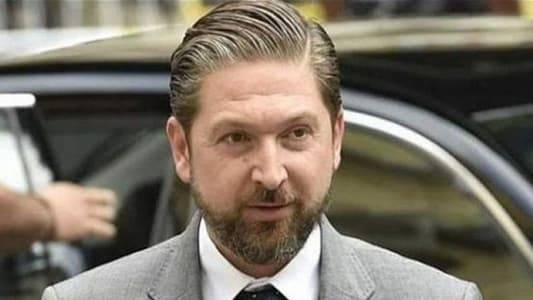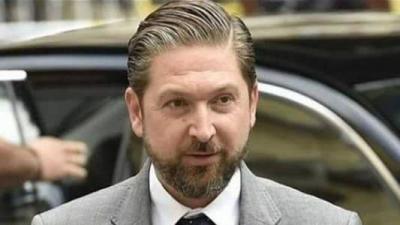Faisal Karamé is back as a deputy. He has never been convinced that the "Popular Will List," of which he was a key figure in Tripoli, emerged from the electoral process with just two electoral shares, while he fell due to the disqualified votes that sealed his fate. That night, before the results were officially announced, Karamé acted as if he were among the winners. It did not cross his mind that the registration committees would discard such a large number of votes, relegating him to the losers' list. Even after the results were announced, Karamé continued to assert: "I am a deputy by the certificate of Tripoli's people, even if not all their votes were counted." Thus, he hurried to gather documents that substantiated his claims, proving that what happened on the night of May 15 was neither innocent nor accidental, but rather orchestrated. This was evidenced by receiving congratulations for his victory that night after calls from the registration committees indicated he was re-elected as deputy, only to wake up the next morning to the news of his defeat by a mere 46 votes—the difference between the shares of the "Popular Will List" and the "True Change List," through which Ihab Matar contested the election.
Moreover, he began receiving calls from some judges involved in the registration committees informing him about the abnormal cancellation of a significant number of votes due to errors that should not have been considered genuine mistakes, without any objections recorded from the representatives. He even heard from his opponents about his "slaughter" in the Beddawi area, where the Karamé family holds significant influence. This prompted him to dig through the numbers to reveal the scale of the disaster he faced due to the annulment of hundreds of votes. For instance, box number 176 was canceled due to a single vote, while there were 51 votes for Karamé in that box.
Based on this, he decided to pursue a constitutional appeal based on the evidence and proofs he managed to gather, which indicated to his lawyer and the concerned legal experts that the chances of the appeal being accepted were very high. It turned out that the constitutional council confirmed the expectations prevalent over the past weeks. The "effendi" returned to parliament. This is not a trivial matter nor is he a mere copy-paste model of his comrades and allies. The young Tripolitan does not lead a bloc, nor does he represent an overarching regional leadership. However, in light of the fundamental changes that have occurred in the Sunni landscape after the departure of Future Movement leader Saad Hariri from the internal equation and Hezbollah's heightened scrutiny of caretaker Prime Minister Najib Mikati, along with Karamé's family background, he will certainly enter the club of candidates for the premiership, even though the circumstances remain highly challenging. However, he will definitely be among the members of the "golden list."
It is true that, in strategic politics, he is an ally of Hezbollah, but he has managed to add some differentiation to his political movement, whether through his good relations with Turkish officials or through his efforts to strengthen his ties with the Saudi Kingdom, evidenced by Saudi Ambassador Walid Bukhari regularly including him in meetings, the last of which occurred a few weeks ago. Moreover, he succeeded in establishing a good relationship with the Free Patriotic Movement despite earlier tensions, which have since been resolved. His relationship with the head of the Marada Movement, Suleiman Franjieh, is more than excellent, as they share a long-standing friendship.
Based on this reality, Karamé rushed to articulate his first political stances related to the presidential file, asserting that "it is impossible to elect a president of the republic without consensus and dialogue." This suggests that the head of the "Karamé Movement" has been contemplating how to approach this issue by working on forming a political front that includes friendly and allied deputies to be one of the components of the "President's Parliament."
Six months have passed since the polls closed, and weeks have gone by since the announcement of the results of the fifteen appeals submitted to the constitutional council began. Every Thursday has a story for Karamé, as he awaits the white smoke from the council's chimney, which easily issued rejections of appeals in uncontested cases, finding no sufficient loopholes that would lead him to a contrary decision. He reserved the more substantial cases for the final stages. Now, they have arrived. In the political balance, the decisions of the constitutional council in its latest two rulings did not cause any disruption in the political composition of the parliament regarding the dismissals of Rami Fanj and Firas Saloum in favor of Faisal Karamé and Haidar Nasser, considering that the eighth of March forces gained Karamé and lost Saloum, who had joined the bloc supportive of Franjieh, while the numbers within the "change groups" balanced out after Fanj's exit and Nasser's entry in his place as he contested the election within the "Rise for Sovereignty for Justice" opposition list.
In terms of numbers, the Popular Will List received 29,277 votes, while the Rise List garnered 14,181 votes. As for preferential votes, Karamé received 6,494 votes from Tripoli, while Nasser received 313 preferential votes.




